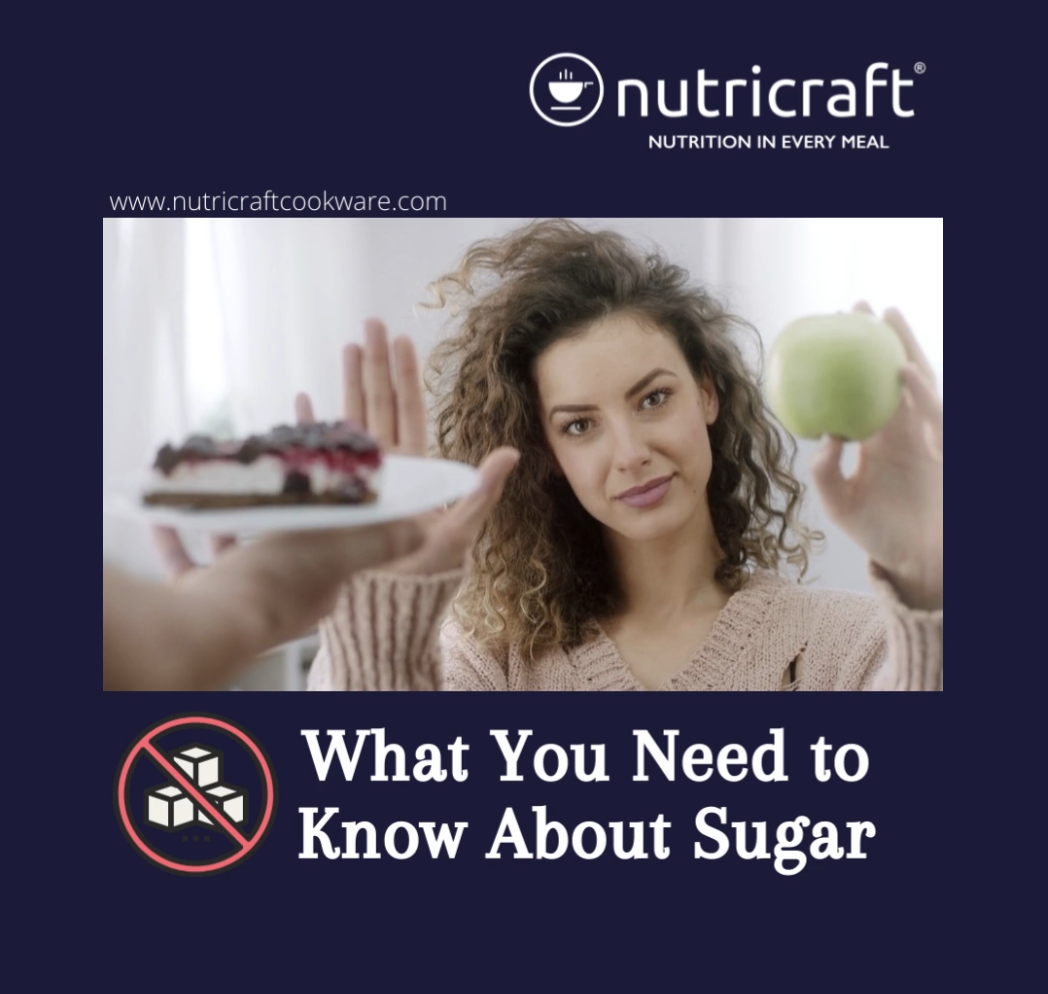Have you ever wondered if you’re eating too much sugar?
The truth is sugar is prevalent in our everyday lives. Sugar is added by food manufacturers to almost every processed food - pizza, canned food, kinds of pasta, ketchup.
Although sugar may taste great, too much sugar may cause you more harm than good.
Sugar itself is a group of molecules. There are different types of sugars such as glucose, fructose, sucrose, and so on. Sugar is naturally in the foods we eat such as fruits or even dairy.
The problem with sugar is that modern-day processed foods have 25% more sugar compared to food in the 1970s.
Over the decades, sugar (mostly sucrose and fructose) has been added to highly processed foods and drinks. Both sucrose and fructose are found in processed foods like pasta, bread, and condiments.
While it is delicious, the amounts of sugar we eat today can cause inflammation in the body, a burden on our liver, and increased insulin in our blood (which triggers hunger).
What you can do:
1. Limit your fructose intake. Fructose doesn’t stimulate the leptin hormone that tells your brain you are full. This leads to excessive food consumption. Excess fructose is converted into fat.
- Fruit does contain fructose. However, the amount of fructose in fruits is low in comparison to high fructose corn syrup.
- Because of the way the body metabolizes fructose, it does not help us feel full or satiated.
- One study noted that foods containing fructose may only contribute to weight gain and cardiometabolic disease if the food itself had excess calories.
- Other studies have shown participants who drank beverages with HFCS gained weight - as opposed to those who didn’t drink HFCS and did not gain weight.
2. Plan healthy and nutritious meals. When you plan and make your meals, you are more aware of the ingredients that go into each dish.
- Prepare your meals.
- Avoid salad dressing with high fructose corn syrup. Choose salad dressings with no added sweeteners.
- Check food labels and choose those that do not have artificial sweeteners.
3. Always check the labels of grocery items. While you do not have to cut sugar out from your diet completely, checking the labels of grocery items and knowing how much sugar is in your food is a great start.
- Sugar on the label has different names: fructose, glucose, sucrose, honey, molasses, and more.
- You might also be surprised to find sugar in foods we assume to be healthy, like yogurt or juice.
- “Low fat” versions of food might have a lot of sugar instead.
- Labels with “no added sugars” just mean that food does not have added sugar, but it can still have high sugar content.
4. Exercise. Your body processes sugar better after a workout. If you’re going to eat sugar, that’s the best time to do it!
5. Limit your sugar intake. Especially if you find you have too much sugar in your diet, limit your sugar intake.
- Drink water or natural drinks. Try to avoid drinking sugary drinks.
- Limit cakes, candies, and other sweet foods.
6. Eat fibre with sugar. Studies have shown that fibre helps control blood sugar levels and can slow down sugar absorption. Fibre also helps you feel full longer, so you are less tempted to overeat.
7. Consider sugar alternatives. Consider replacing sugar with an alternative such as honey, agave, or spirulina.
8. Speak to a nutritionist. The ways humans process food can be complex. There is no one right philosophy to approach sugar. If you want to lead a healthy life, consult a nutritionist to create a custom dietary plan.
Overall, being aware of the impact sugar can have on your body is a great start. While there is nothing wrong with sugar itself, the problem is that many people consume too much without realizing it.
There is more sugar in modern-day processed foods, so it’s a good idea to consider how that might impact your health, weight, and quality of life.
Find out more about nutrition, health, and wellness at Nutricraft where you will get the lifelong benefits of safe, smart, and healthy cooking. Nutricraft Titanium Cookware is the safest and smartest cookware providing nutrition in every meal. Join our free cooking classes so you can start a healthy lifestyle.

